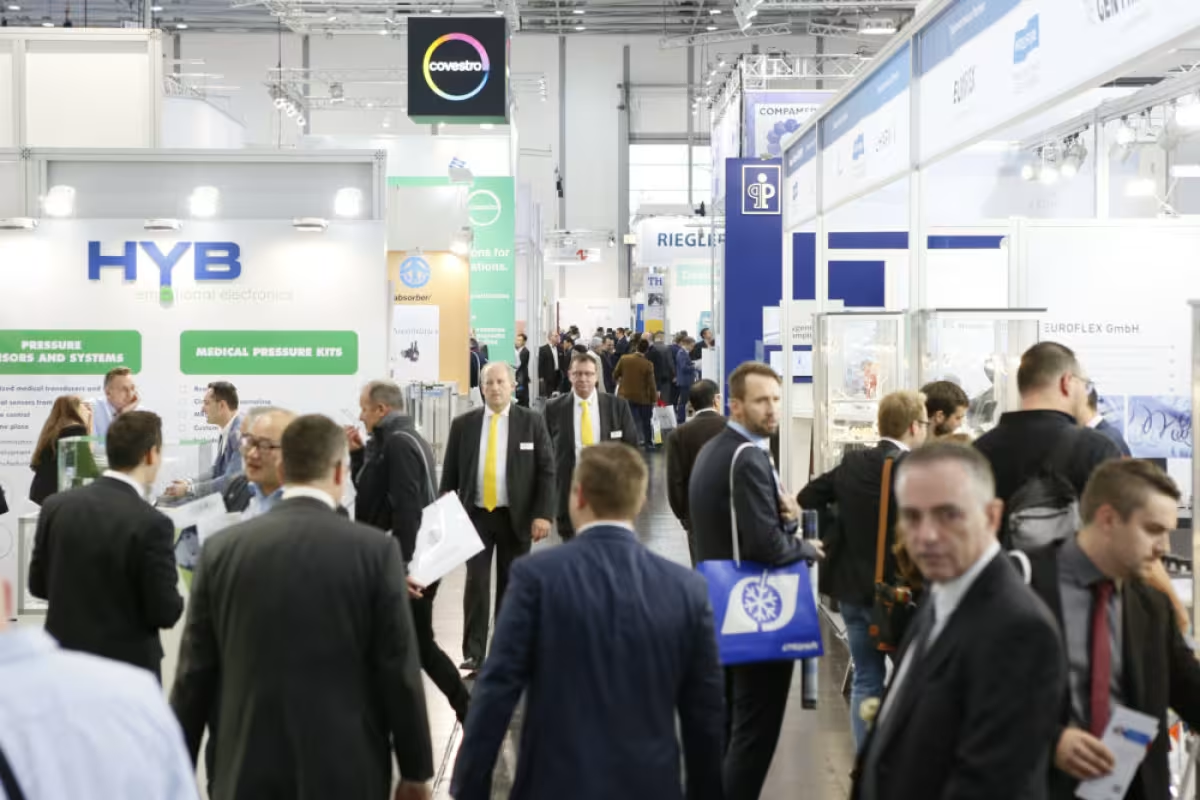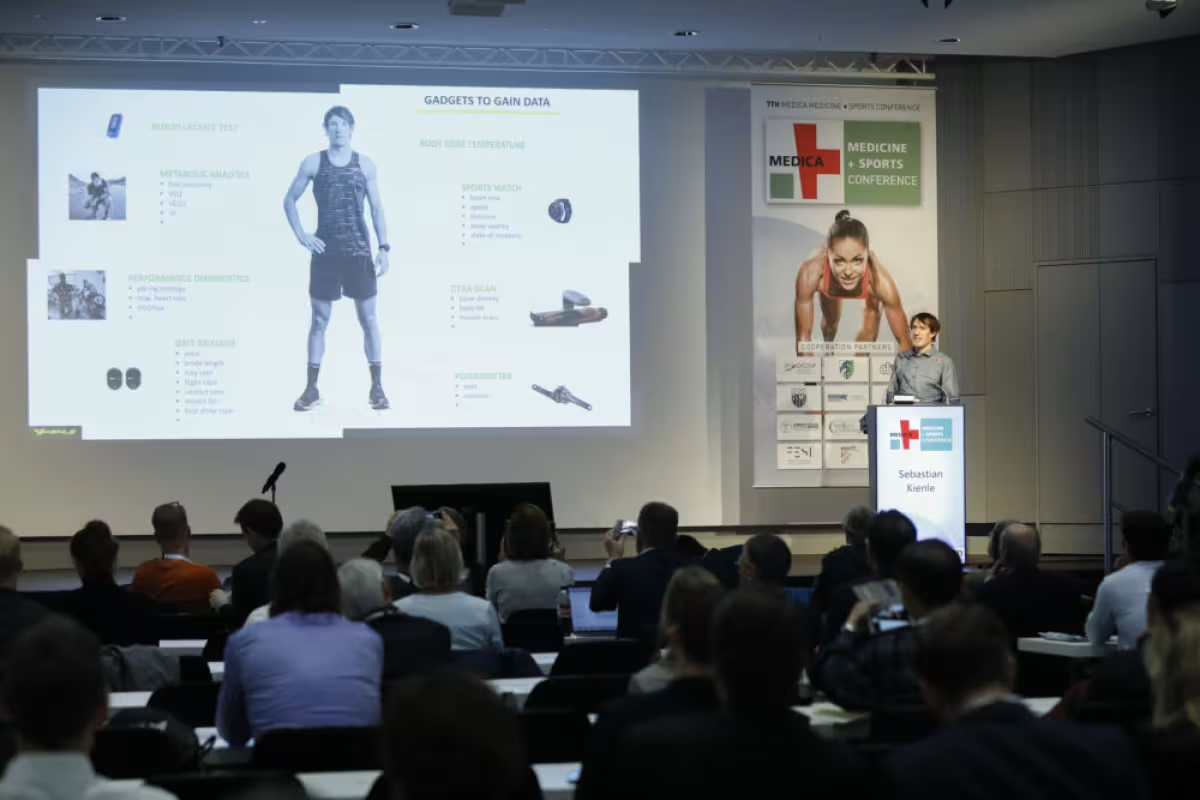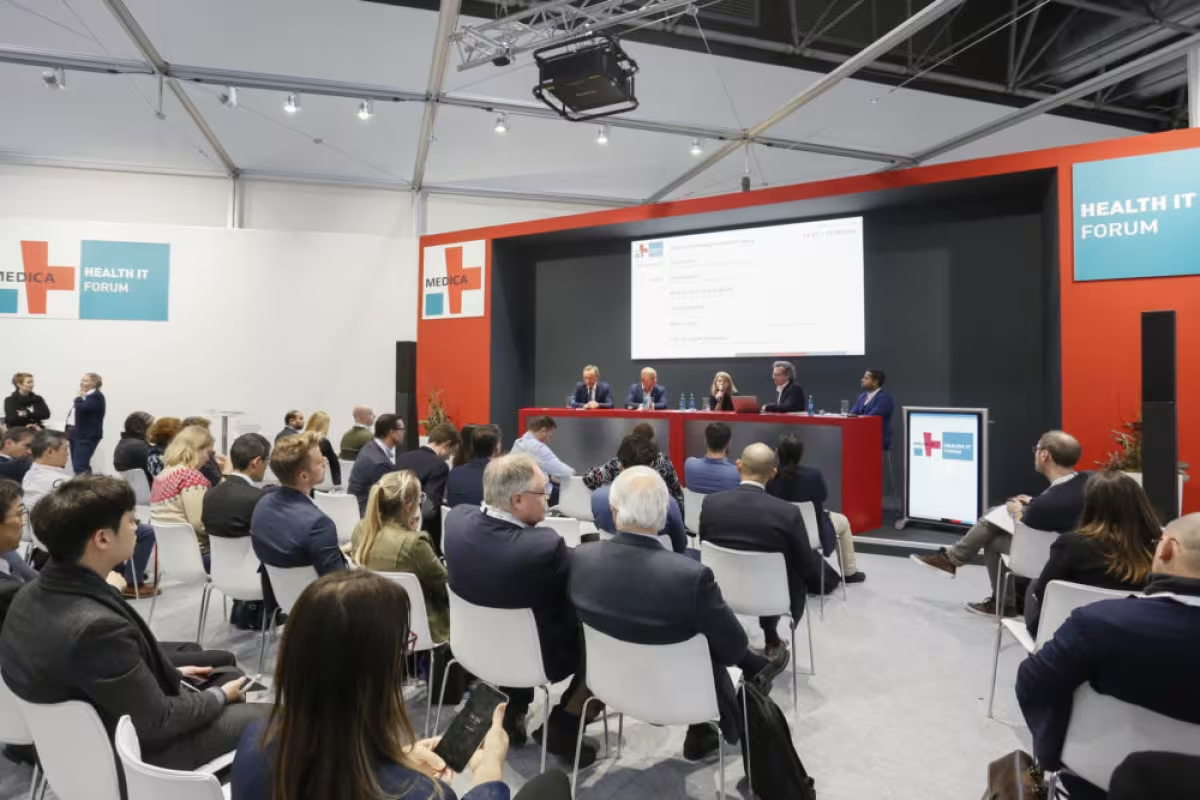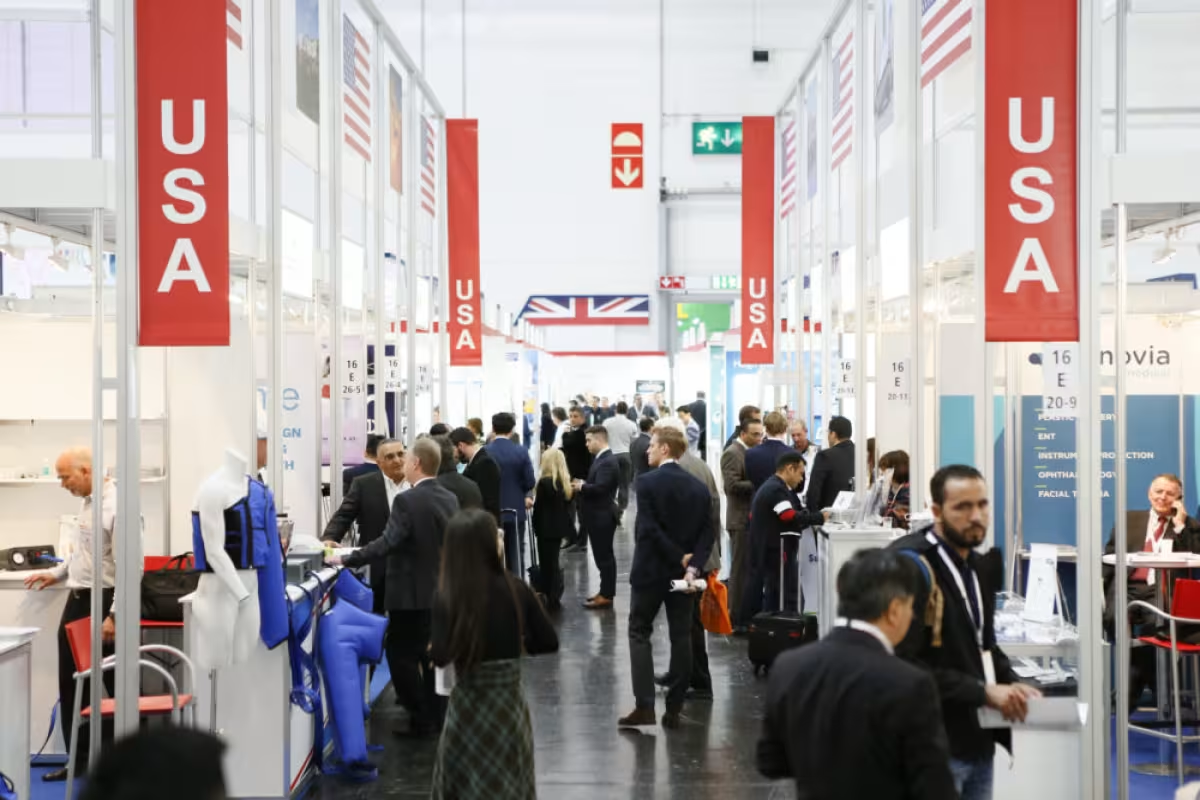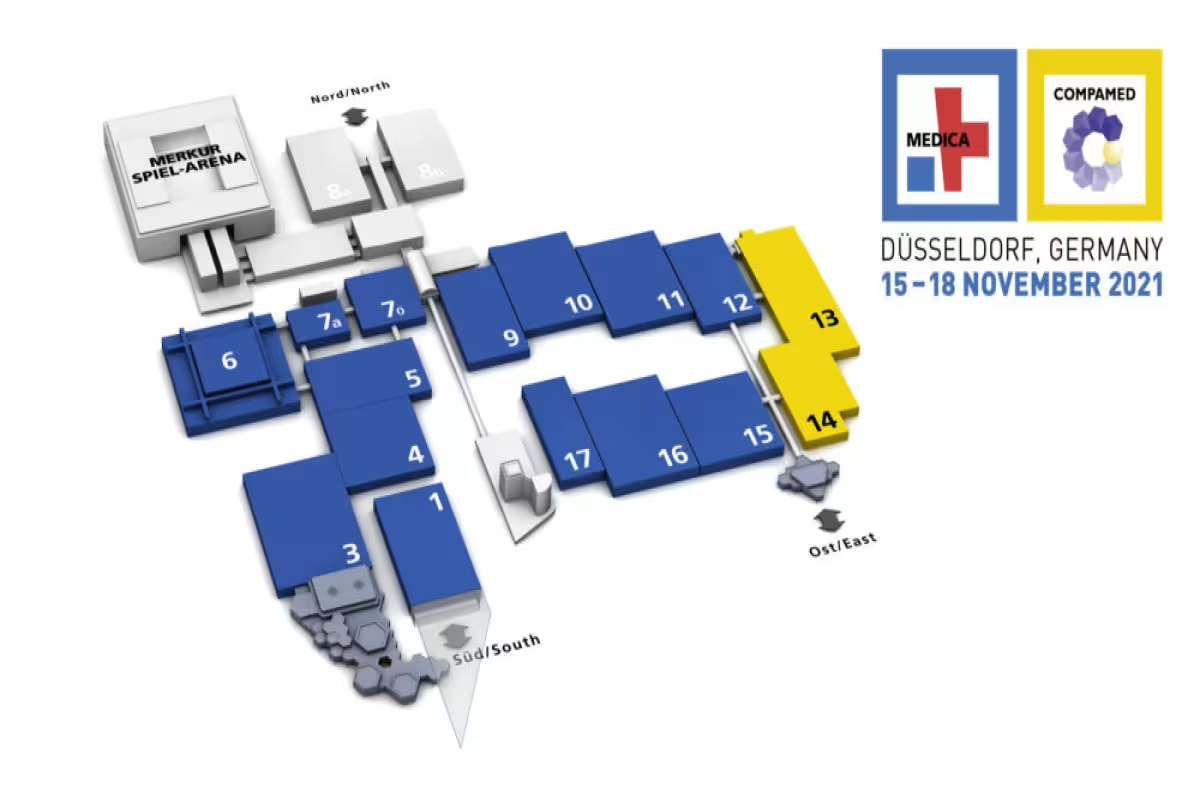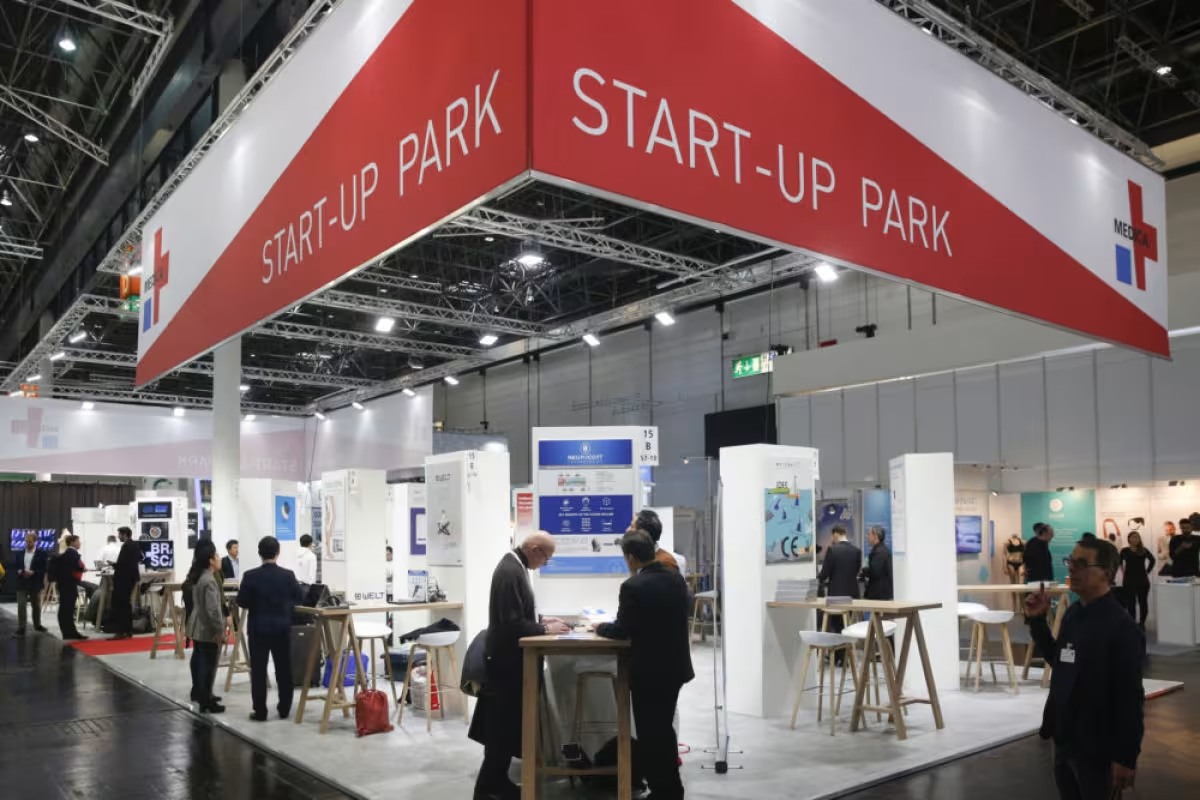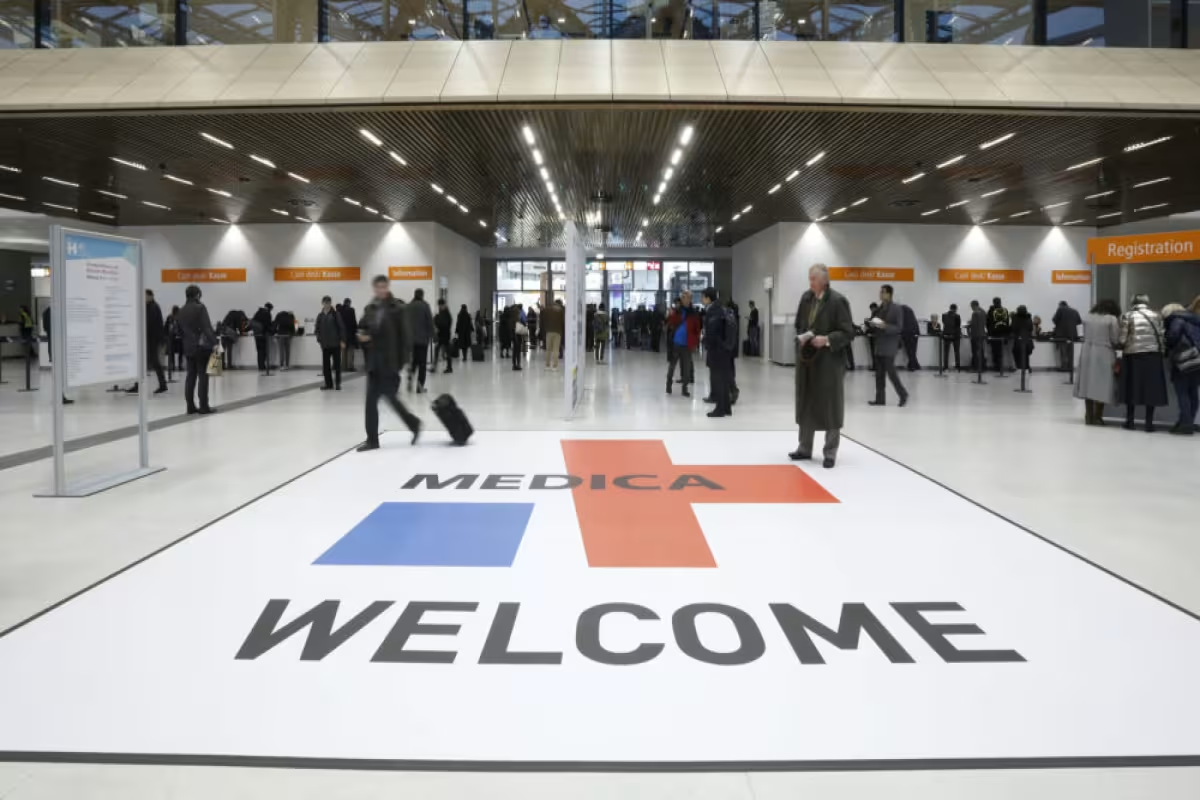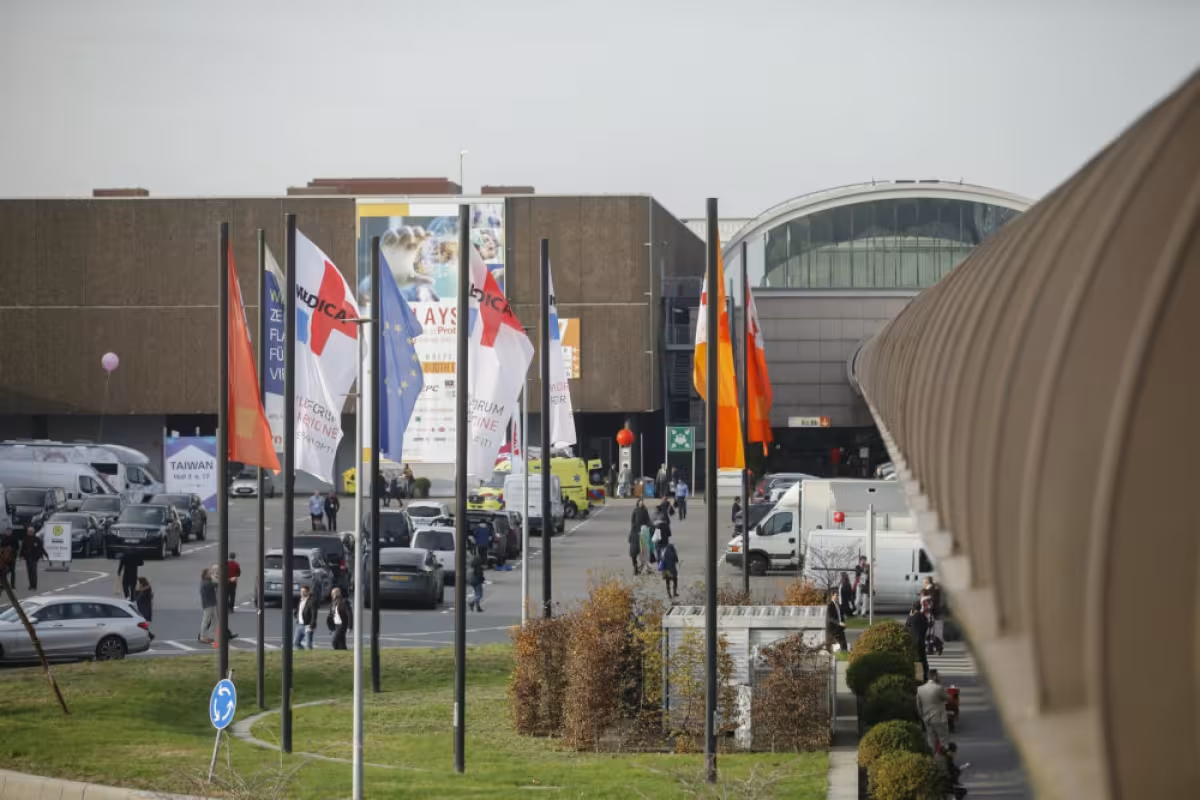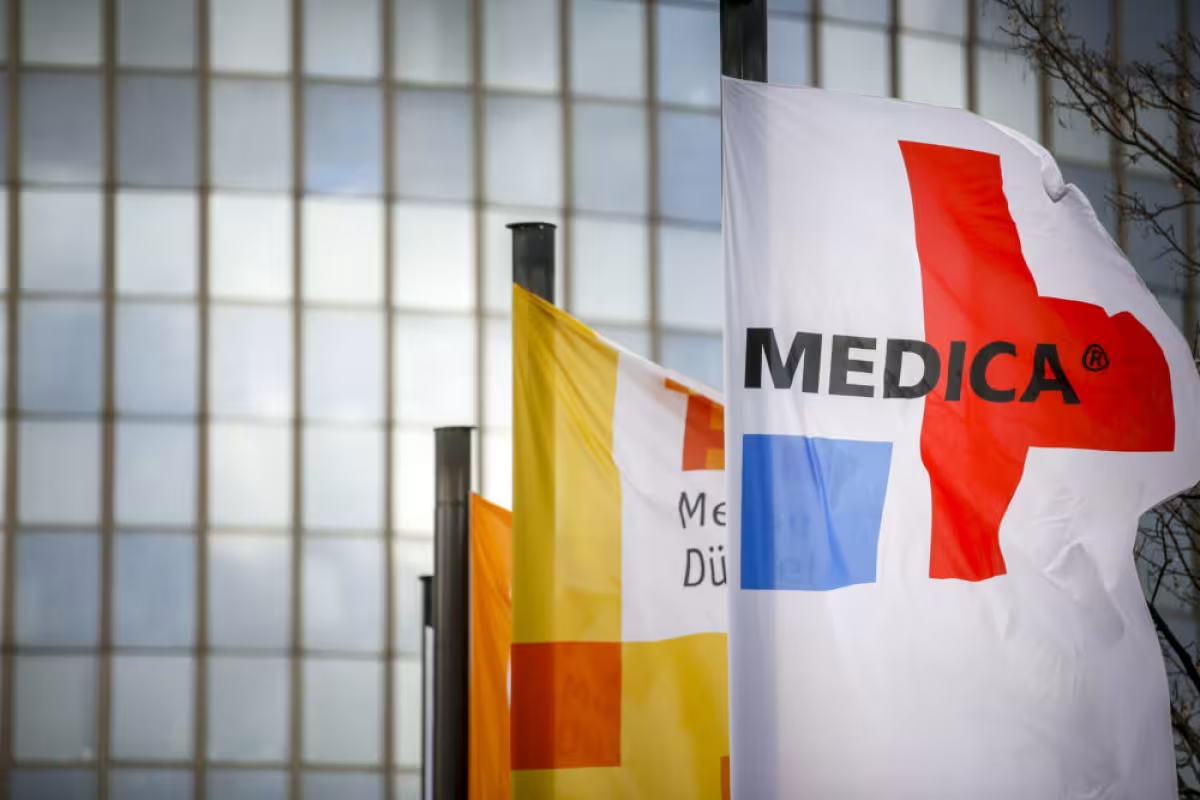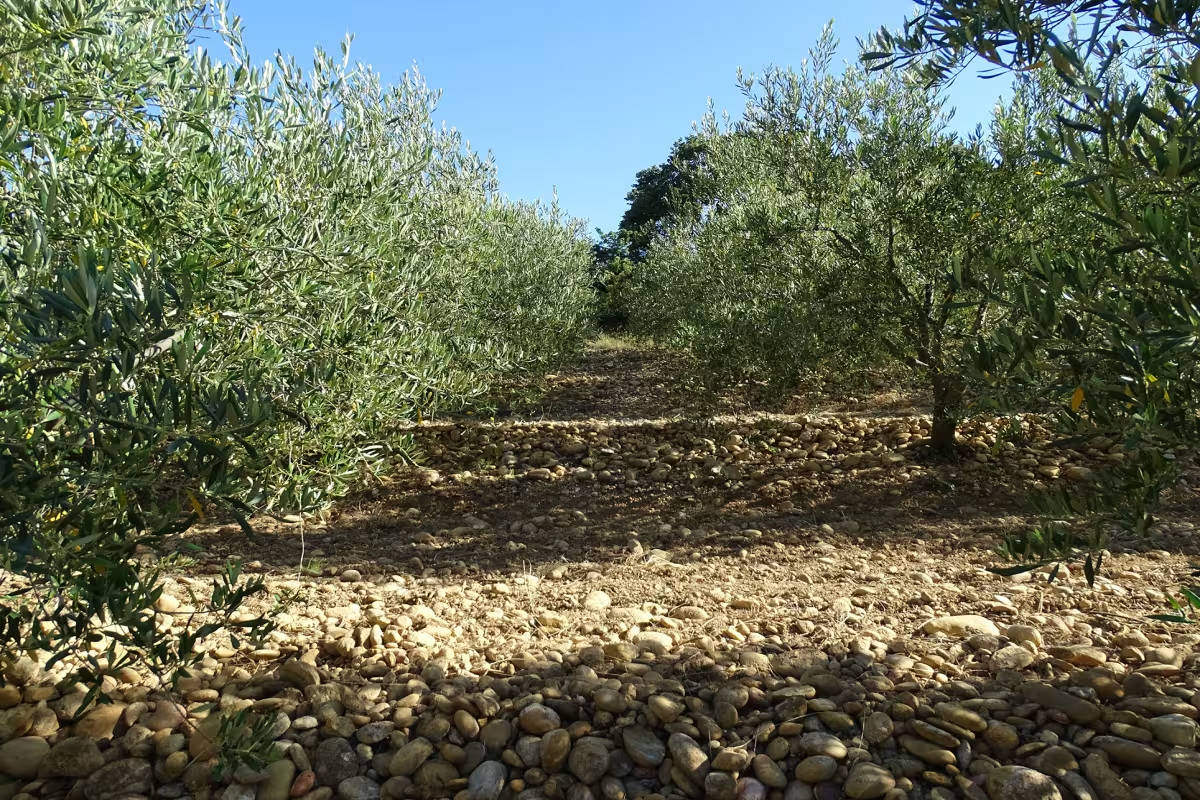At MEDICA LABMED FORUM, top-class speakers present the latest research results in laboratory medicine
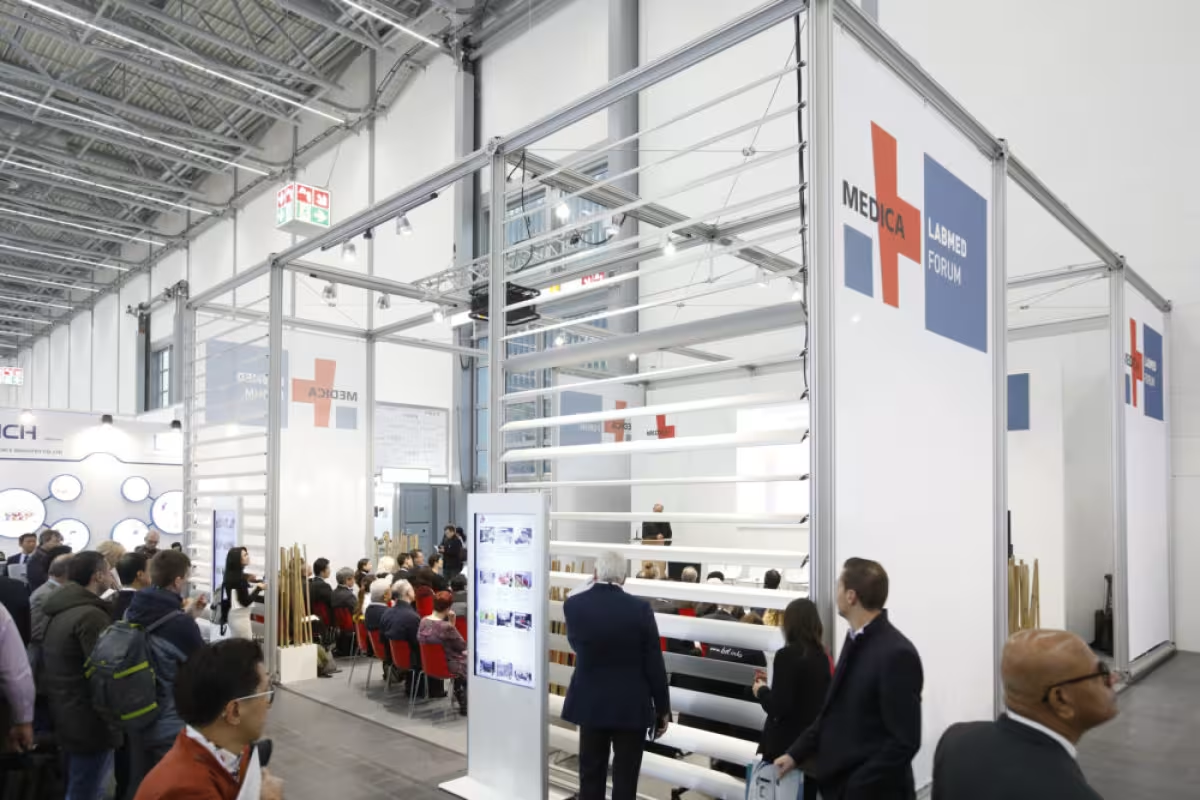
Innovative molecular biological methods, Covid-19, the latest developments at universities and in the industry – these core themes determine the four-day programme dedicated to the diagnostic field of laboratory medicine. In times of the pandemic, laboratory medical disciplines are the talk of the town. The latest scientific findings in the fields of virology, infectiology, immunology, microbiology and biotechnology will be presented as part of MEDICA, the world’s leading medical trade fair which will take place in Düsseldorf from 15 to 18 November 2021. Here, the MEDICAL LABMED FORUM will offer medical professionals, health care providers and industry representatives a range of highly topical talks by specialists from around the globe in Hall 1. In keeping with MEDICA’s hybrid event concept, visitors with a corresponding ticket can either follow the forum’s programme live at the trade fair or via a digital live stream on the MEDICA.de industry portal. The forum will be held in English.
On day one, top-class speakers will hold short presentations and take part in interactive panel discussions that revolve around microbiology and metagenomics – with a particular focus on Covid-19. On the second day, cardiology and oncology take centre stage, while the third and fourth days of the event take a closer look at the latest developments in the university field and industry. “On the whole, there are three keywords that sum up this year’s LABMED FORUM,” explains Prof. Dr Georg Hoffmann of Trillium, specialists for medical publications, who organises the event series in cooperation with the German Heart Centre Munich. “The first is genomics, in other words, the latest molecular biological methods that look at a genome in its entirety. Secondly, we will be focussing on aspects and vaccinations related to Covid-19, and thirdly we will be taking a closer look at research and innovative projects at universities and in the industry.”
Day 1: Metagenomes and metabolomics
The forum’s programme kicks off on 15 November (from 10:30 a.m.) with the themes metagenomes and metabolomics, chaired by Prof. Dr. med. Beniam Ghebremedhin (Witten/Herdecke University, HELIOS Wuppertal University Clinic). This day focuses on microbiology and infectiology in relation to Covid-19.
Metagenomics and metabolomics are the two fastest progressing “omics” technologies (Note.: This is the umbrella term for molecular biological methods) and cover each end of the omics’ cascade. Metagenomics identifies the genetic potential of a community, while metabolomics deals with the actual biology that results in a phenotype. This research provides new insights into the etiology of diseases of the digestive tract and the metabolism, and now of Covid-19 as well.
Around five percent of all Covid-19 patients develop a severe to critical illness; in addition, 50 percent of deceased patients with severe Covid-19 exhibit a secondary bacterial infection. Antibiotics clearly play an influential role in the success of treatment. In his talk on “Metagenomics in Covid-19 and co-infection”, Prof. André Gessner of the University Hospital Regensburg explains the results of current studies that examined the role microbiomes play in the development of Covid-19.
A Covid-19 diagnosis is usually based on the detection of viral nucleic acid sequences. Even though the characteristics of the host reaction are not measured, they still play a decisive role in determining the result. While metabolic profiles are well suited to determine the host’s condition, most metabolomic studies are either: too weak; only measure a limited subset of metabolites; compare infected persons with control cohorts that are not infected and not suitable as the cohort demographics differ from each other too greatly; or do not provide a compact prognostic model. Two further morning sessions supplement one another, namely the talks held by Prof. Dr Jianguo Xia, McGill University in Montreal, and Dr Ivayla Roberts, University of Liverpool. Both focus on a powerful metabolomics screening method used on Covid-19 patients, which enables a prognosis on the severity of the infection and the further progression of the disease.
The keynote held by Dr Vautz, ION-GAS, Dortmund , focuses on metabolic processes, which include many volatile organic compounds (VOCs). These volatile metabolites are released in our airways when we breath and can therefore easily be collected for analysis. Prof. Dr Steven L. Zeichner, University of Virginia, United States, presents the latest findings on hyper-inflammatory processes in children; a small number of these young patients suffer from Covid-19. In the afternoon, Dr Sebastian Ulbert, Fraunhofer Institute for Cell Therapy and Immunology IZI, Leipzig, takes a closer look at monitoring protective humoral immune responses. This production of antibodies is essential when assessing the risk of new infections.
Day 2: Cardiology and oncology
The second day of the event, 16 November (from 10:30 a.m.), is chaired by Prof. Dr med. Stefan Holdenrieder of the German Heart Centre Munich and is dedicated to cardiology and oncology. Prof. Dr Simon, Johannes Gutenberg University Mainz, and Prof. Dr Billy Sperlich, University of Würzburg, talk about cardiac performance diagnostics in athletes and Covid-19, a highly topical theme with regard to the pandemic and with a view to the progression of long Covid. The keynotes of Prof. Dr Wolfgang König, German Heart Centre Munich, and Prof. Dr Ralph Burkhardt, University Hospital Regensburg, focus on new biomarkers in the risk stratification and diagnosis of cardiovascular disease.
In the afternoon, the second oncological focal topic takes a closer look at new developments in the field of liquid biopsies. Prof. Ellen Heitzer, University Hospital Graz, and Dr Verena Haselmann, University Hospital Mannheim, talk about the current state of research and its implementation into the routine diagnosis of circulating nucleic acids in the blood of tumour patients. The speakers explain the current state of technical developments, their suitability for routine use, the implementation into guidelines and quality assurance as well as the reimbursement of costs by health insurance companies.
In his talk, expert Prof. Dr Michel van den Heuvel, Radboud University Nijmegen, focuses on monitoring immune therapies through conventional protein and molecular markers. Besides targeted therapies, immune therapies are the greatest innovation in oncological therapy of the last years. This form of therapy requires the careful selection of patients who can be expected to respond to it as well as attentive monitoring in order to modify and steer this costly therapy in good time should patients prove non-responsive. Prof. Dr Michael Pfaffl, Technical University of Munich, talks about new diagnostic possibilities that have opened up thanks to exosome markers.
Day 3: Young talents present projects for the future
As in any other discipline, young talents and junior scientists determine the future of their fields; they contribute new ideas, are inquisitive and emphasise innovative focal points outside traditional boundaries. Laboratory medicine is surely the most diverse medical discipline in terms of diagnoses; at the same time, this field is also characterised by its professional diversity when it comes to its junior staff. In the first session on the third day of the event, young and more established junior scientists alike present their scientific findings with a focus on the role of cellular immunity in SARS-CoV-2 infections as well as the meaning of exosomes in cardiomyopathy. One talk takes a look at South America, explaining the significance and perspectives of laboratory medicine in Bolivia, while another expert talk focuses on how the analysis of all circulating nucleic acids can supplement traditional liquid profiling and expand the diagnostic possibilities in oncology.
The second session of the day is dedicated to integrative diagnostics that are controlled by artificial intelligence. Expectations are high that in future, these will allow a huge leap forwards in terms of more precise and cost-effective diagnostics, compared to the current standard evaluations. These expectations go hand in glove with hopes for improvements in the quality of life and/or life expectancies of affected patients. Young talents from a range of disciplines that include laboratory medicine, radiology, computational biology and computer science discuss the value and potential challenges of this new diagnostic approach.
Day 4: Innovations from academic and industrial research
The last day of the event focuses on current trends in academic and industrial research. The pandemic has driven research into and the search for new diagnostic solutions with a high sensitivity that lead to speedy results, require minimal use of equipment and are ideally able to measure several biomarkers, known as multiplexing. Here, electrochemical detection systems are increasingly taking centre stage in the form of biosensors. In the morning, Dr Firat Güder, Imperial College London, will present a miniaturised, electrochemical qPCR. Known as TriSilix, this lab-on-a-chip is cost-effective in production and could replace traditional qPCR systems in future.
In her talk, Dr Despina Moschou, University of Bath, takes a closer look at recognising sepsis at an early stage. This requires the precise quantification of a range of biomarkers, ideally without the use of electrochemical sensors, as these bear a risk of biological contamination. To achieve this, the planar gold electrodes on a lab-on-PCB micro system were given a new, nanocomposite coating composed of cross-linked bovine serum albumin containing a network of reduced graphene oxide nanoparticles.
In his talk, Dr Gerhard Kahr, Genius5-instruments , focuses on a distorted sense of smell as a primary symptom of Covid-19 in children. 90 percent of children in whom a distorted sense of smell has been detected have Covid-19. Systematically testing the sense of smell will help recognise this distortion at an earlier stage, which will in turn help identify patients who have been infected yet do not exhibit symptoms of the disease. As these are non-contact tests, they are usually accepted by children without any difficulties.
Dr Martin Raasch, Dynamic42 , Jena, presents a research platform for the future. As a 3D in vitro model of a human lung, this microphysiological system has integrated immune cells and helps research Covid-19 and other infectious diseases of the lung.
For more information about the the MEDICA LABMED FORUM programme, please visit: https://www.medica-tradefair.com/forums.
Link to this press information: https://www.medica-tradefair.com/pm06e_labmed
Author: Gabriele Brähler, Healthcare Journalist (Berlin)
Photo: At MEDICA LABMED FORUM, top-class speakers present the latest research results in laboratory medicine (c: Constanze Tillmann).
